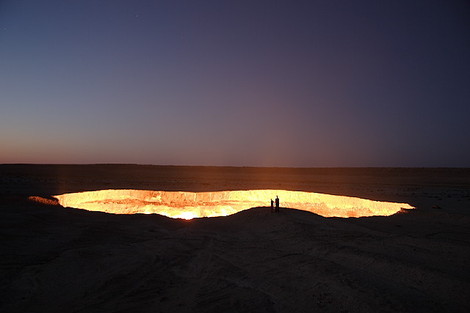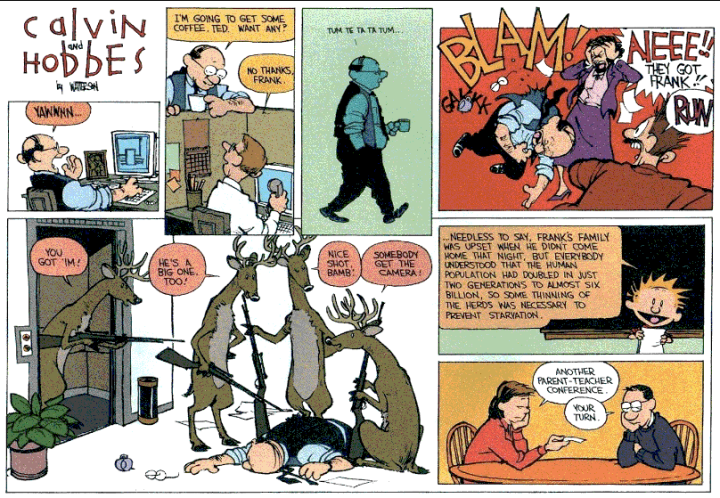Birthers on the Hill
Okay, not that I approve of Huffington Post’s ambush journalism a la Bill O’Reilly, but watching Rep. Tom Price (R – GA) actually sprint away from a reporter asking him about Obama’s birth just made my day:
This whole birth issue is just fascinating to me. Not because it’s just a funny conspiracy theory making its rounds, but because it actually has legs. Republican constituents actually believe this stuff and believe it passionately. Here’s Politico’s coverage of the distraction:
At a town hall meeting in Georgetown, a woman demanded to know why Castle and his colleagues were “ignoring” questions about Obama’s birth certificate— questions that have been put to rest repeatedly by state officials in Hawaii, where the birth certificate and all other credible evidence show that Obama was born in Honolulu on Aug. 4, 1961.
When Castle countered that Obama is, in fact, “a citizen of the United States,” the crowd erupted in boos, the woman seized control of the gathering and led a recitation of the Pledge of Allegiance.
It certainly serves to illustrate the level of power these folks can garner for themselves. Republican lawmakers, meanwhile, are powerless in assuring these folks or becoming a voice of reason. Ta-Nehisi Coates may have the word on the subject:
I think this is what happens when you only fulfill half of your duty as a leader. Surely part of it is to represent your folks. But another part of it is to protect them from the mob mentality. But when you actively cultivate Schiavo, “intelligent” design, Confederate Flags, and homophobia, I’m not sure what you expect.
To paraphrase Douglass, a Party is worked on by what they choose to work on. Work on stupid, expect to get stuck there.
Not that it will necessarily prove anything to conspiracy theorists, but here’s the birth-certificate. I’ve already heard folks decry it as invalid because it’s not the original. Of course, all we have of dinosaurs are some piles of old bones and all we have from the holocaust are some old photographs. Deniers deny.
Jacko: R.I.P.
So after initial reports from journalistic juggernaut TMZ, every major news outlet confirms that Michael Jackson aka “Jacko” aka “The King of Pop,” has passed away from heart failure.
Celebrity deaths are always something of a strange experience for me. I rarely feel any posthumous connection to recently departed celebrities and with the exception of Heath Ledger, I approach them from an emotional distance. But celebrity deaths are nonetheless fascinating, opening up opportunities for the legend to grow where the story fades. Maybe that’s why Chuck Klosterman feels that dying is the best career move any iconic star could choose. Michael Jackson will be remembered as a musical genius who owned a theme-park, felt kinship with Peter Pan, and may or may not have molested young children — which is hard to inflate. But I know we’ll find a way. Here’s to the legend.
I leave you with this money quote from the A.V. Club’s blurb on MJ’s passing:
Jackson was rushed to the hospital by paramedics after a heart attack left him without a pulse. Jackson was training with Lou Ferrigno in preparation for a comeback attempt.
The Natural “Gates of Hell”
Joshua Foer, guest-blogging at Boing Boing links to this natural anomaly:

It’s a massive underground coal fire that’s been smoldering beneath the town of Centralia, Pennsylvania ever since 1962:
The town sits on top of a rich vein of coal, and the fire has defied every attempt to extinguish it. National awareness of Centralia’s unending environmental catastrophe came in 1981 when a 12-year-old boy fell into a 150-foot hole that suddenly appeared in his back yard. Most residents were relocated in 1984, and in 1992 the entire town was condemned. Most buildings were torn down, creating the Centralia that can still be seen today: a network of streets running through empty fields and, increasingly, new growth forest. As of 2007, Centralia had nine residents.
Then Dylan told me about a similar, and even more dramatic, subterranean fire that’s been burning for almost as long under the Karakum desert of Turkmenistan (pictured above). Locals call it the “Gates of Hell“:
The hole is the outcome not of nature but of an industrial accident. In 1971 a Soviet drilling rig accidentally punched into a massive underground natural gas cavern, causing the ground to collapse and the entire drilling rig to fall in. Having punctured a pocket of gas, poisonous fumes began leaking from the hole at an alarming rate. To head off a potential environmental catastrophe, the Soviets set the hole alight. The crater hasn’t stopped burning since.
Turns out, these sorts of mine fires can stay lit for a very long time. One burned in the city of Zwickau, Germany from 1476 to 1860. Another coal fire in Germany, at a place called Brennender Berg (Burning Mountain), has been smoking continually since 1688!
Thomas Edison: BMX
Jason Kottke links to this video of Thomas Edison doing bike tricks circa 1899:
Kottke:
This seemed fake when I first watched it but here it is at The Library of Congress.
Eleven Heavy Things

Part of Eleven Heavy Things, a series of outdoor sculptures by artist, author, and filmmaker Miranda July.
The series premiered as part of the Venice Biennale 53rd International Art Exhibition.
Incidentally, July has one of my favorite websites in her companion site to 2007’s No One Belongs Here More Than You.
How to Build a Moral Majority
Randall Balmer, professor of American Religious History at Barnard College, Columbia University, has a book out depicting the many factors that aligned to allow the rise of the Christian Right. Balmer’s book Thy Kingdom Come chronicles many of these events, demonstrating to the reader why — or what — exactly got these folks so riled up, that they needed more of a voice in the electorate. I know what you’re thinking, but it wasn’t abortion. Balmer explains his experience at a conference discussing this very subject:
In November 1990, for reasons that I still don’t entirely understand, I was invited to attend a conference in Washington sponsored by the Ethics and Public Policy Center, a Religious Right organization (though I didn’t realize it at the time). I soon found myself in a conference room with a couple of dozen people, including Ralph Reed, then head of the Christian Coalition; Carl F. H. Henry, an evangelical theologian; Tom Minnery of Focus on the Family; Donald Wildmon, head of the American Family Association; Richard Land of the Southern Baptist Convention; and Edward G. Dobson, pastor of an evangelical church in Grand Rapids, Michigan, and formerly one of Jerry Falwell’s acolytes at Moral Majority. Paul M. Weyrich, a longtime conservative activist, head of what is now called the Free Congress Foundation, and one of the architects of the Religious Right in the late 1970s, was also there.
In the course of one of the sessions, Weyrich tried to make a point to his Religious Right brethren (no women attended the conference, as I recall). Let’s remember, he said animatedly, that the Religious Right did not come together in response to the Roe decision. No, Weyrich insisted, what got us going as a political movement was the attempt on the part of the Internal Revenue Service (IRS) to rescind the tax-exempt status of Bob Jones University because of its racially discriminatory policies.
Barner continues:
The IRS sought to revoke the tax-exempt status of Bob Jones University in 1975 because the school’s regulations forbade interracial dating; African Americans, in fact, had been denied admission altogether until 1971, and it took another four years before unmarried African Americans were allowed to enroll. The university filed suit to retain its tax-exempt status, although that suit would not reach the Supreme Court until 1983 (at which time, the Reagan administration argued in favor of Bob Jones University).
…During the meeting in Washington, D.C., Weyrich went on to characterize the leaders of the Religious Right as reluctant to take up the abortion cause even close to a decade after the Roe ruling. “I had discussions with all the leading lights of the movement in the late 1970s and early 1980s, post Roe v. Wade,” he said, “and they were all arguing that that decision was one more reason why Christians had to isolate themselves from the rest of the world.”
“What caused the movement to surface,” Weyrich reiterated,” was the federal government’s moves against Christian schools.” The IRS threat against segregated schools, he said, “enraged the Christian community.” That, not abortion, according to Weyrich, was what galvanized politically conservative evangelicals into the Religious Right and goaded them into action. “It was not the other things,” he said.
Ed Dobson, Falwell’s erstwhile associate, corroborated Weyrich’s account during the ensuing discussion. “The Religious New Right did not start because of a concern about abortion,” Dobson said. “I sat in the non-smoke-filled back room with the Moral Majority, and I frankly do not remember abortion ever being mentioned as a reason why we ought to do something.”
During the following break in the conference proceedings, I cornered Weyrich to make sure I had heard him correctly. He was adamant that, yes, the 1975 action by the IRS against Bob Jones University was responsible for the genesis of the Religious Right in the late 1970s. What about abortion? After mobilizing to defend Bob Jones University and its racially discriminatory policies, Weyrich said, these evangelical leaders held a conference call to discuss strategy. He recalled that someone suggested that they had the makings of a broader political movement—something that Weyrich had been pushing for all along—and asked what other issues they might address. Several callers made suggestions, and then, according to Weyrich, a voice on the end of one of the lines said, “How about abortion?” And that is how abortion was cobbled into the political agenda of the Religious Right.
The makings of a broader political movement—something that Weyrich had been pushing for all along—and asked what other issues they might address. Several callers made suggestions, and then, according to Weyrich, a voice on the end of one of the lines said, “How about abortion?” And that is how abortion was cobbled into the political agenda of the Religious Right.
Falwell and others who eventually became leaders of the Religious Right, in fact, explicitly condemned the civil rights movement. “Believing the Bible as I do,” Falwell proclaimed in 1965, “I would find it impossible to stop preaching the pure saving gospel of Jesus Christ, and begin doing anything else—including fighting Communism, or participating in civil-rights reforms.” This makes all the more outrageous the occasional attempts by leaders of the Religious Right to portray themselves as the “new abolitionists” in an effort to link their campaign against abortion to the nineteenth century crusade against slavery.
I can’t say I’m particularly surprised. Falwell used to be a segregationist and most other evangelical leaders have usually adopted one or the other hot-button issues for the sake of political expediency in election cycles. Ed Dobson has since recanted much of his contributions to the Christian Right, which is why it isn’t surprising for me to read he would be so candid with Balmer.
In a somewhat related note, this whole excerpt makes me wonder just how much influence money has had in many of the decisions these organizations make — i.e. which causes they will champion and which will fall by the wayside. I imagine an organization like Focus on the Family could not raise funds the way they might like when it comes to their original missional issues like adoption, divorce, or family counseling; thus adopting a gritty, political edge had to be the most profitable avenue of fundraising (and I’m pretty sure this continues to be the case). The same goes for Falwell and Ralph Reed. These individuals were involved in huge organizations and projects — building universities and so on — which would have required millions of dollars in donations and fundraising. So the question becomes how do you fundraise effectively with the highest yields?
I always liked Watterson’s take on the subject:

So I have to wonder, just how much did money play into these decisions? If a Dobson or Falwell or Reed can convince their millions of devotees that their freedoms, liberties, families and futures are at stake, how much more money do you think they could raise? This is, of course, marketing 101.
Perhaps it’s cynical, but I wouldn’t put it past them.
Slate: The Worst Anti-Drug Movie Ever Made
Slate has this clip up about 1990’s Cartoon All-Stars to the Rescue. It’s an anti-drug film involving characters as diverse as Bugs Bunny, the Smurfs, Alvin & the Chipmunks, Winnie the Pooh, and — interestingly enough — Alf. For some reason my parents rented this for me when I was probably 8 or 9 and I’ve always wondered what it was called and why I was being forced to watch it. I suppose I just received the answer to both.
There are so many jokes that could be made about this type of film. I won’t even start.
Calvin & Hobbes: Thinning of the Herds
 I’ve always enjoyed this particular Watterson strip because of the thinly veiled “f*** you” to the hunting industry. There’s certainly the underlying voice of social commentary in most of Watterson’s work, but this is one of those comic strips where he just wears it on his sleeve. Plus I am just bewildered to think that Watterson got away with publishing a syndicated cartoon showing a guy getting murdered.
I’ve always enjoyed this particular Watterson strip because of the thinly veiled “f*** you” to the hunting industry. There’s certainly the underlying voice of social commentary in most of Watterson’s work, but this is one of those comic strips where he just wears it on his sleeve. Plus I am just bewildered to think that Watterson got away with publishing a syndicated cartoon showing a guy getting murdered.
All that to say, Calvin & Hobbes never ceases to entertain and amaze me.
via Progressive Boink.
Wikipedia, Printed & Leather-Bound
Reproducing Wikipedia in a dysfunctional physical form helps to question its use as an internet resource. Articles in the book: Wikipedia’s featured articles.
Let’s instead say “question its use as a credible internet resource.” Because let’s be honest, we all love wikipedia and we’re not exactly using it to write our thesis — hopefully.




leave a comment